Revisiting Macroeconomic Management in Times of Crisis and Beyond
FromMar 26, 2022 To Mar 30, 2022
Online Webinar
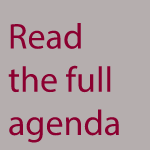 ERF annually holds a highly visible conference that concentrates on issues of high relevance to economic policy in the region. This flagship event draws on the contributions of senior policy makers, distinguished academic researchers as well as referred open call papers to promote region-wide and international knowledge and evidence-based development and public policy debates and mentorship of promising researchers.
ERF annually holds a highly visible conference that concentrates on issues of high relevance to economic policy in the region. This flagship event draws on the contributions of senior policy makers, distinguished academic researchers as well as referred open call papers to promote region-wide and international knowledge and evidence-based development and public policy debates and mentorship of promising researchers.
The ERF Annual Conference, a tradition maintained since 1995, has become the premiere regional event for economists of the Middle East and North Africa (MENA), where new ideas are created and disseminated; where the community of researchers meet and where excellence is celebrated. Established in 1993, the primary mission of ERF is to build robust indigenous capacity for doing rigorous policy-oriented research and to deploy this capacity to inform development policy making. In this regard, the ERF Annual Conference has become the premier platform in MENA, connecting economic and other social science researchers from across the region.
The Arab Fund has been generously sponsoring the ERF Conference for some 18 years. Thanks to this un-wavered commitment, ERF has been able to successfully deliver against its core mission and continue to convene this flagship event.
This year the conference is held under the theme of “Revisiting Macroeconomic Management in Times of Crisis and Beyond”. This is a timely topic in the light of the changes implied by the pandemic at the economic, social and digital levels. This choice also reflects an overwhelming consensus among the ERF community of researchers and policy makers.
There will be three main plenary sessions, four special plenaries, one policy seminar and one policy roundtable which will feature presentations by leading economists, social scientists, and policymakers. The conference sessions will be composed of a larger number of diverse papers spanning cross-cutting themes selected on the basis of rigorous refereeing process in response to an open call for papers.
Conference Theme
Main Questions:
Against this backdrop, the ERF 28th annual conference will ask the following fundamental questions:
- How fiscal, monetary, and financial policies should be managed in times of mega crisis, such as the Covid-19 pandemic, in order to deal with the ensuing consequences for oil and commodity prices, fiscal space, and debt management?
- Beyond the pandemic, and from a structural transformation perspective, what are the reforms needed in order to cope with digitalization, climate change, and industrial revolution?
- At the social level, in times of crisis and beyond, what should be the role of the State to make social policies more effective, more sustainable, and more inclusive?
Conference Sessions
- Plenary Sessions and Special Panels are outlined below by date.
- Conference Parallel Sessions details can be accessed through the following pages:
Agenda
Special Session on Sustaining Global Value Chains in partnership with Asian Infrastructure Investment Bank
Date
24/03/2022
Location
Online Webinar
Time
From 3:00 pm To 4:30 pm
The report focuses on the impact of COVID-19 on value chains and the more long-term challenges to decarbonize. The session will aim to assess whether the model of China and its hub can be replicated to EU and South Med Countries, potentially Tunisia, Egypt, Morocco and Jordan. The link between SDGs and GVCs is also highlighted in the report and is of high relevance for the MENA region given that the latter can integrate into GVCs that are not inclusive (in terms of job creation, job quality and environment).
Speakers
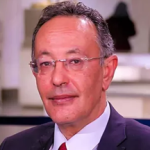
Research Fellows
Ahmed Ghoneim
Professor, Faculty of Economics and Political Sciences,...

Speakers
Erik Berglof
Chief Economist of the Asian Infrastructure Investment...

Authors
Jaime de Melo
Professor Emeritus, University of Geneva

Research Fellows
Chahir Zaki
Chaired Professor of Economics, University of Orléans

Research Fellows
Leila Baghdadi
Senior Economist, MENA Chief Economist Office, World...
Presentations
Videos
Special Session on– Growing up in a Digital World – in partnership with Center for International Governance Innovation (CIGI)
Date
24/03/2022
Location
Online Webinar
Time
From 5:30 pm To 7:00 pm
The COVID-19 pandemic brought to the fore many of the issues the Commission was already aiming to tackle, further highlighting the timely relevance and importance of digital transformations. Viewing digital transformations of health through the lens of UHC, the Commission found that countries’ approaches to digital health governance could be strengthened in five areas:
- Most countries’ digital health strategies are not focused on maximizing the public value of digital health and data to tackle global health challenges and improve health for all.
- Approaches to digital transformations in health and other areas are not sufficiently grounded in key principles—such as solidarity, human rights, equity, and inclusion, which could help to increase the public value of digital health and prevent technology and data from being used in harmful ways.
- The views and needs of young people are almost never prioritized in digital health strategies, and young people are not adequately involved in policy or technology development.
- Governments are not using their full powers to control the actions of technology companies so that they promote health, wellbeing, and human rights—especially for young people.
- Despite the global nature of the internet and digital transformations, governments are slow to cooperate with other countries in creating common global governance frameworks for digital health and health data.
Speakers
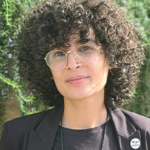
Speakers
Vivian Baadan
Social, Political, and Cultural Psychologist
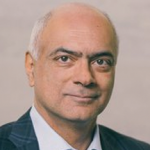
Authors
Rohinton P. Medhora
President of the Centre for International Governance...

Research Fellows
David Bishai
Professor, Department of Population and Family Health...
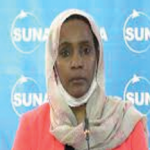
Speakers
Sara Hassanain
Former Acting Minister of Health, Sudan
Presentations
Videos
Agenda
Session on the FEMISE-CMI report on: Post Covid-19 Opportunities for Growth, Regional Value Chains and Mediterranean Integration
Date
26/03/2022
Location
Online Webinar
Time
From 4:30 pm To 6:00 pm
The FEMISE-CMI report explores post-COVID opportunities for fostering growth and for deepening regional cooperation in the Mediterranean region, with a focus on five Southern and Eastern Mediterranean countries (Algeria, Egypt, Jordan, Morocco and Tunisia). In three thematic chapters, the report brings forward the analysis on how to deepen EU-Med integration by prioritizing regional value chains (RVCs), improving food security capacities, strengthening and digitalizing the health sector, and further developing the pharmaceutical sector. The Covid-19 crisis has hit the economies of Mediterranean countries which were already struggling. The report focuses on the challenges essentially linked to the food security and health sectors and the obstacles leading to less than optimal private sector performance. The report also highlights the opportunities that are created within this crisis for deepening regional cooperation by identifying potential “niches products” for economic integration for the EU-Med Region.
While the COVID crisis presented a challenge to the region, the post-recovery could present an opportunity to reset the priorities and move forward towards a sustainable and inclusive development. There is a common belief that the Mediterranean regional integration must go beyond the development of trade in goods and services, and the technical aspects of trade facilitation. This session aims to answer the following questions:
1. Now that we have identified the “niche” of potential integration” vs. a vs. the EU, how can the South Med countries capitalize on these opportunities following the re-designing of the Global Value Chain?
2. What could be the role of the EU in this context to support the South Med integration? And what impact of the AfCFTA in facilitating a ‘neighbours of neighbours’ relation?
3. How to better engage the private sector in the GVC? What policies are needed in this context? How can the sector enhance its innovation /digitalisation capacity to serve the regional needs?
Speakers

Authors
Maryse Louis
FEMISE, General Manager
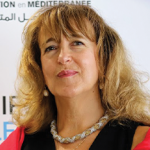
Speakers
Blanca Moreno-Dodson
Director, Center for Mediterranean Integration (CMI)
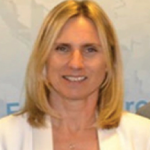
Speakers
Patricia Augier
Professor, Aix-Marseille University (AMU)
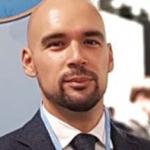
Speakers
Constantin Tsakas
Senior Programme Officer, CMI-UNOPS

Senior Associates
Bernard Hoekman
Professor and Director, Global Economics, Robert Schuman...

Research Fellows
Raed Safadi
Partner and Chief Economist, Whiteshield Partners, Dubai

Speakers
Bernard Ziller
Senior Advisory, the European Investment Bank
Videos
Poverty and Wealth Inequality in Arab States: Measurement and Forecasting Proposals
Date
26/03/2022
Location
Online Webinar
Time
From 4:30 pm To 6:00 pm
How can income poverty be estimated using limited aggregate distributional statistics? How can absolute and relative poverty measurement be reconciled, and harmonized across countries and years? And how should poverty be projected under given forecasts of mean and inequality growth?
The fundamental aim of the panel session is to propose innovative methodologies to settle on meaningful quasi-absolute poverty lines comparable across space and time, and to forecast the impacts of growth and redistribution on household poverty rates. The second aim is to link this work on poverty measurement to wealth inequality in the region and discuss some policy implications.
Speakers

Senior Associates
Speakers
Asad Alam
Regional Director, Equitable Growth, Finance & Institutions...
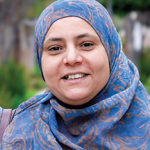
Research Fellows
May Gadallah
Associate Professor, Departments of Statistics, Cairo University

Research Fellows
Paul Makdissi
Professor of Economics, University of Ottawa

Policy Affiliates
Khalid Abu-Ismail
Senior Economist, United Nations Economic and Social...

Speakers
Hassan Hamie
Economist, Poverty and Inequality Research Team, UN...

Authors
Vladimir Hlasny
Economic Affairs Officer, UN Economic and Social...
Videos
Agenda
Special Policy Session: Egypt in Focus – in partnership with Egyptian Center for Economic Studies (ECES)
Date
27/03/2022
Location
Online Webinar
Time
From 5:30 pm To 7:00 pm
Two mega projects stand out recently, namely: the huge expansion in infrastructure all over Egypt, and the Hayah Kareema initiative. The first project was initiated in 2015 and is estimated to be the biggest in Africa, the latter started in 2021. The session aims to assess the two projects from an economic development perspective.
The presentation by ECES and discussions with panelists will attempt to answer the following key questions among others:
- To what extent does the priority agenda of both projects meet the development needs of the country?
- What are the sources of finance for each project and to what extent it affects the debt situation?
- What is the reaction of the private sector to expansion in infrastructure? To what extent it represents an incentive for investment
- What is the level of involvement of civil society in the planning and implementation of Hayah Kareema?
- What is the system for monitoring and evaluation of the impacts of each of the two projects?
- What is the needed policy infrastructure to complement the physical infrastructure in Hayah Kareema?
Speakers
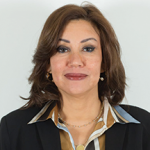
Research Fellows
Abla Abdel-Latif
Executive Director and Director of Research, Egyptian...
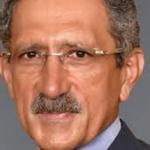
Speakers
Tarek Tawfik
Deputy Chairman of the Federation of Egyptian...
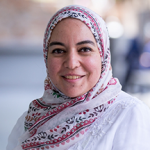
Research Associates
Imane Helmy
Senior Economist at World Bank’s Poverty and...

Speakers
Osama Okail
Prof. of Highway ,Traffic & Airport Engineering...
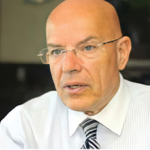
Speakers
Mohamed Kassem
Chair, World Trading Company
Videos
Agenda
Plenary 1: Macroeconomic Management in Times of Crisis
Date
28/03/2022
Location
Online Webinar
Time
From 3:00 pm To 4:30 pm
The Coronavirus pandemic is now widely acknowledged to have created the most devastating economic crisis since the 1930s great depression. For the oil-dependent MENA economies, already reeling from regional conflicts and that instability, the consequences have been particularly dire. One the one hand, the resource-rich economies saw their public finances come under stress due to a secular decline in oil prices since 2014, prompting a serious re-think about their future fiscal sustainability and growth. One the other hand, oil-importing economies had to adopt expansionary fiscal policies to contain the negative economic impact of the pandemic, further aggravating an already limited fiscal space and looming debt crisis. Indeed, while the rise in debt is a global phenomenon, it is particularly challenging for MENA in view of serious economic development and governance failure. First, the region has so far failed to achieve meaningful economic diversification for creating jobs, beyond the informal and low productivity sector. Second, fiscal discipline is weak and often coupled with problematic governance of debt management. Third, in many cases, the accumulation of debt is often not solely driven by the increase in fiscal deficits, suggesting that below-the-line operations may often contribute to debt increases.
Subscribing to the above discussion, the first plenary session will identify the main tenets of the emerging macroeconomic framework for dealing with the new emerging challenges facing macroeconomic and development policy. Among other questions, the following five should merit particular consideration:
- What are the short-term and long-term effects of the surge in debt and the developments in oil prices?
- What kind of domestic reforms and global initiatives are needed to help MENA and other developing countries manage the emerging debt crisis and achieve debt sustainability, especially in view of the politics and political economy challenges associated with high social mobilization in several countries in the region?
- How might MENA and other developing countries enhance resource mobilization capacity, including through mainstreaming digital transformation in the tax systems?
- With the cyclical and secular downward pressure on oil prices, how resource-rich countries can manage their public finances in the times of crisis, including through drawing down from SWFs?
- In view of the likely need for a non-fiscal shock absorber, should countries currently pursuing heavily managed and pegged exchange rates consider more flex regimes?
Speakers

Senior Associates
Samir Makdisi
Professor Emeritus of Economics, American University of...
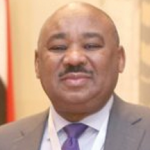
Research Fellows
Ibrahim Elbadawi
Development Studies & Research Forum, Dubai

Speakers
Carmen Reinhart
Senior Vice President and World Bank Group...

Research Fellows
Rania Al-Mashat
Minister of Planning, Economic Development and International...
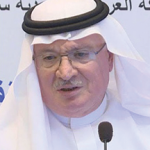
Research Fellows
Majid A. Al-Moneef
Secretary General, Supreme Committee on Hydrocarbon Affairs...

Senior Associates
Raimundo Soto
Associate Professor of Economics, Pontificia Universidad Católica...
Presentations
Videos
Special Plenary 1: The Macro-institutional aspects of Social Protection and the Role of the State
Date
28/03/2022
Location
Online Webinar
Time
From 5:30 pm To 7:00 pm
From a social perspective, while monetary and fiscal policies managed to relatively stabilize MENA economies, they failed to address structural and social issues. Indeed, there is now widespread recognition of the need to integrate macroeconomic management and social policies. While with limited success, macroeconomic management in MENA has focused on price stability and enhancing the role of the private sector as key drivers for economic growth, social policies were not sufficiently mainstreamed in the design of macroeconomic policies. Indeed, social policies were always “added-on” without being fully integrated in macroeconomic policies. Thus, thinking beyond the current crisis, it is pertinent to rethink the role of the state as provider of universal social protection in a world economy increasingly vulnerable to pandemics and other shocks.
Among other issues, this session will ask the following questions:
- What is the role of the State in making social policies more inclusive and more sustainable? How macroeconomic policies can be equitable without being less efficient?
- Is universal social protection feasible in light of the limited fiscal space of MENA economies?
- How to align the political economy challenge for tax reform and enhancing the resource mobilization capacity of states in MENA and other developing countries?
- How social policies can be mainstreamed in macroeconomic management?
Speakers

Speakers
Nesreen Barakat
CEO, Jordan Strategy Forum
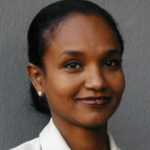
Speakers
Nada Eissa
Associate Professor, Public Policy and Economics, and...

Speakers
Alan Gelb
Senior Fellow, Center for Global Development

Research Fellows
Najat El Mekkaoui
Professor of Economics, University Paris-Dauphine
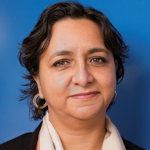
Speakers
Hania Sholkamy
Associate Research Professor, Social Research Centre, The...
Presentations
Videos
Agenda
Plenary 2: The Macroeconomics of Development Policies beyond the Crisis
Date
29/03/2022
Location
Online Webinar
Time
From 3:00 am To 4:30 am
While it is indispensable to address the negative effects of the crisis in the short term, longer term structural transformation strategies are needed in view of the major developments associated with the digital revolution and decarbonization. First, at the climate change level, with the low-carbon technology diffusion, the advancement in renewable energy and the unprecedented mushrooming of environmental agreements, the demand for fossil fuel is destined to decline, leading to an eventual “stranded assets” problem for MENA. A stranded asset can be defined as a resource that once had value or produced income but no longer does, usually due to some kind of external change, including changes in technology, markets and societal preferences. This is why, currently, the term “stranded assets” is most commonly used to describe oil and gas resources that have not yet been extracted, but which appear as assets on companies’ ledgers and a few countries’ balance sheets. Therefore, MENA economies need to undergo major restructuring and diversification away from their heavy direct and indirect dependence on fossil resources as the prime engine of growth. Second, with the new industrial revolution and the digital transformation the world is experiencing, a new development model should be adopted by MENA countries to better integrate into the global economy and to make their economies more competitive and more agile.
Against this backdrop, among other issues, this second plenary will consider the following three questions:
- Beyond the crisis, what are the deep reforms that are needed to improve the structure and the resilience of MENA economies
- What are the alternative development models for MENA economies to boost their industrialization and structural transformation
- How digital transformation and climate change can be mainstreamed in the design of a new macroeconomic model for developing countries?
Speakers

Research Fellows
Hassan Hakimian
Professor of Economics and Director, Middle Eastern...

Research Fellows
Dani Rodrik
Ford Foundation Professor of International Political Economy,...

Research Fellows
Ibrahim Elbadawi
Development Studies & Research Forum, Dubai

Policy Affiliates
Mary Kawar
Director, Regional Hub of the Regional Bureau...

Research Fellows
Atif Kubursi
Professor, McMaster University
Presentations
Videos
Special Plenary 2: The Microeconomics of Social Protection
Date
29/03/2022
Location
Online Webinar
Time
From 5:30 pm To 7:00 pm
While the first plenary focuses the macroeconomics of social protection, it is crucial to examine their micro-foundations for two reasons. First, beneficiaries from social policies cannot be treated as a homogenous group given that there are stark differences between males and females, formal and informal workers, nationals and refugees, etc. Thus, this special plenary analyses the following questions:
1. How can MENA economies handle social protection to reach workers in the informal economy?
2. How the delivery of social protection can be improved for all beneficiaries?
3. How States can adopt a more holistic approach in social protection in terms of removing financial barriers to quality health care, enhancing income security, and protecting incomes and jobs?
Speakers
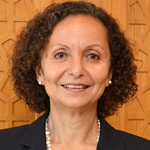
Research Fellows
Noha El-Mikawy
Dean, School of Global Affairs and Public...

Research Fellows
Insan Tunali
Associate Professor Emeritus, Koç University

Authors
Vladimir Hlasny
Economic Affairs Officer, UN Economic and Social...

Research Fellows
Massoud Karshenas
Emeritus Professor of Economics, Department of Economics,...
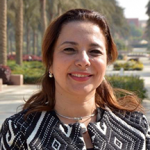
Research Fellows
Mona Said
Professor of Economics, Economics Department, The American...
Presentations
Videos
Agenda
Plenary 3: Macroeconomics and Finance in the Digital Age
Date
30/03/2022
Location
Online Webinar
Time
From 3:00 pm To 4:30 pm
Macroeconomic policy challenges have been exacerbated by the digital finance revolution given that financial markets have been significantly affected by digitalization and technological change. Moreover, digital currencies, largely disconnected from the fundamentals and whether issued by central banks or elsewhere, are rapidly evolving and attracting numerous investors the fundamentals. Thus, with all the advantages and risks associated to these new products, central banks will have to adapt and cope in the middle of the new wave.
This session will attempt to answer the following questions:
- What are the local and global implications of digitalization on financial markets and monetary policy in the MENA region?
- How Central Banks and Sovereign Wealth Funds can adapt and benefit from these trends?
- To what extent these new trends can promote (thanks to newer financial products) or discourage (because of more uncertainty) trade flows?
Speakers

Research Fellows
Hassan Aly
Dean, Business School, Nile University

Authors
Franklin Allen
Professor of Finance and Economics and Executive...
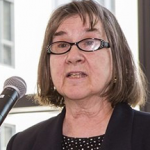
In Honorable Memory
Research Fellows
Mine Cinar
In Honorable Memory

Policy Affiliates
Marwan Al-Zoubi
Professor, Germany Jordanian University
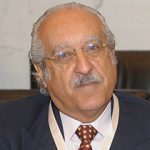
Research Fellows
Wafik Grais
Freelance Senior Economic Advisor
Videos
Policy Session: Crisis and Innovation - Challenges of Macroeconomic Policy and Growth in the wake of Covid-19 and Beyond
Date
30/03/2022
Location
Online Webinar
Time
From 5:30 pm To 7:00 pm
As we have seen in previous panels, the current socio-economic situation is dire in most of the region. Everywhere, policy-makers face the triple challenges of macro-instability, low growth and job creation, and high levels of popular contestation. The triple challenge has been described as a trilemma between social stabilisation, financial adjustment, and structural reform. Action on any one front makes actions on the others more complicated.
The temptation for policy-makers in the face of a gridlock of difficulties is to lower expectations and get used to a “low equilibrium”, below society’s potential. In contrast, the alternative is to abandon a business-as-usual approach, and to let the crisis becomes a wake-up call and a harbinger of innovation.
The proverb – necessity is the mother of invention – appears already in Plato’s Republic. In the face of a stark situation, innovation becomes the only way out.
The policy question, in the face of the trilemma, thus becomes: How to create hope for a better future, that can sustain trust, and fuel the type of social cooperation that can generated long term progress.
The goal of the session is to examine initiatives from around the region that innovate in the face of adversity, and that have started to create hope that progress is possible. Policy innovation involves financial, social, and possibly political costs, in pursuit of gains that can start small but could become game changers over time.
Speakers

Research Fellows
Ishac Diwan
Director of Research, Finance for Development Lab,...

Speakers
Jihad Azour
Director of the Middle East and Central...

Research Fellows
Yousef Hamad Al-Ebraheem
Former Minister of Finance, Kuwait

Speakers
Fathallah Oualalou
Senior Fellow, Policy Center for the New...

Research Fellows
Ibrahim Elbadawi
Development Studies & Research Forum, Dubai

Speakers
Arjan de Haan
Senior Program Specialist, International Development Research Centre...

